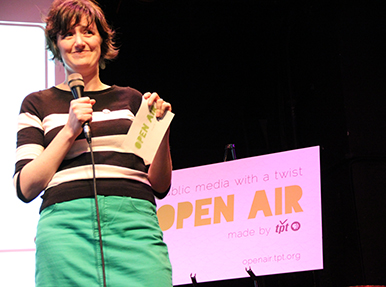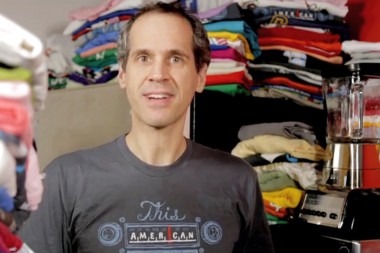Author: Andrew Lapin
Off-duty deputy charged with murder in NewsHour shuttle driver shooting
Craig Patterson, the Sheriff's deputy in Arlington County, Va., who allegedly shot and killed PBS NewsHour shuttle driver Julian Dawkins May 22 ...By Andrew LapinMay 31, 2013Electronic Frontier Foundation solicits help to battle podcasting lawsuit
The Electronic Frontier Foundation is waging a public battle against Texas-based technology company Personal Audio over a pending patent lawsuit over podcasts, ...By Andrew LapinMay 30, 2013William Miles, documentary filmmaker
William Miles, an Oscar-nominated filmmaker and chronicler of the black experience, died May 12 in Queens, N.Y., from uncertain causes.By Andrew LapinMay 30, 2013Louis Cook, Native American broadcaster
Louis Cook, a longtime host and producer for North Country Public Radio in Canton, N.Y., and a mentor to Native American broadcasters, ...By Andrew LapinMay 29, 2013Unscathed by tornado, Oklahoma pubcasters band together to report, assist with relief
Oklahoma has a small but tight-knit pubcasting community, so covering the massive May 20 tornado and its aftermath required everyone on the ...By Andrew LapinMay 28, 2013PBS Digital Studios further expands web video output
PBS Digital Studios is expanding its web video output with three new YouTube series: Deep Prep, UnderH2O and Short of the Week.By Andrew LapinMay 23, 2013Julian Dawkins, shuttle driver for PBS NewsHour, fatally shot in Virginia
Julian Dawkins, the shuttle driver for PBS NewsHour's Arlington, Va. employees, was fatally shot the night of May 21 in Alexandria, Va., ...By Andrew LapinMay 22, 2013TPT launches Open Air, a new brand aimed at engaging young viewers
Twin Cities Public Television describes its new Open Air programming and promotional initiative as “tailor-made to meet the demands of a new ...By Andrew LapinMay 21, 2013David Sedaris is guest-hosting Selected Shorts all month
Public radio favorite David Sedaris, a frequent contributor to This American Life and other programs, is hosting weekly episodes of Selected Shorts this month. The first show of ...By Andrew LapinMay 21, 2013Center for Investigative Reporting to streamline operations, publish fewer stories
The Center for Investigative Reporting will fold its three different brands under one roof beginning May 29. The CIR moniker will now ...By Andrew LapinMay 20, 2013Planet Money crowdfunder soars, PRI campaign falls short of goal
Two of public radio’s three biggest distributors launched major crowdfunding experiments in the past month, with wildly different results.By Andrew LapinMay 16, 2013CPTV’s mobile venture to share revenues with PTV outlets
Connecticut Public Television has joined with a digital media company in rolling out a new mobile platform that will offer digital downloads ...By Andrew LapinMay 13, 2013Merrill Brockway, Emmy-winning Dance in America producer, dead at 90
Merrill Brockway, a producer and director of several PBS arts programs who was best known for his work on the Great Performances spinoff Dance in America, ...By Andrew LapinMay 8, 2013George Walker, ATC anchor for West Virginia network, dies at 60
George Walker, the host of local broadcasts of All Things Considered on West Virginia Public Radio for nearly 12 years, was found dead in ...By Andrew LapinMay 6, 2013PRI stations to experiment with locally customized news
The competition for midday timeslots on public radio stations is heating up, as Public Radio International and producers of its news programs ...By Andrew LapinMay 2, 2013








